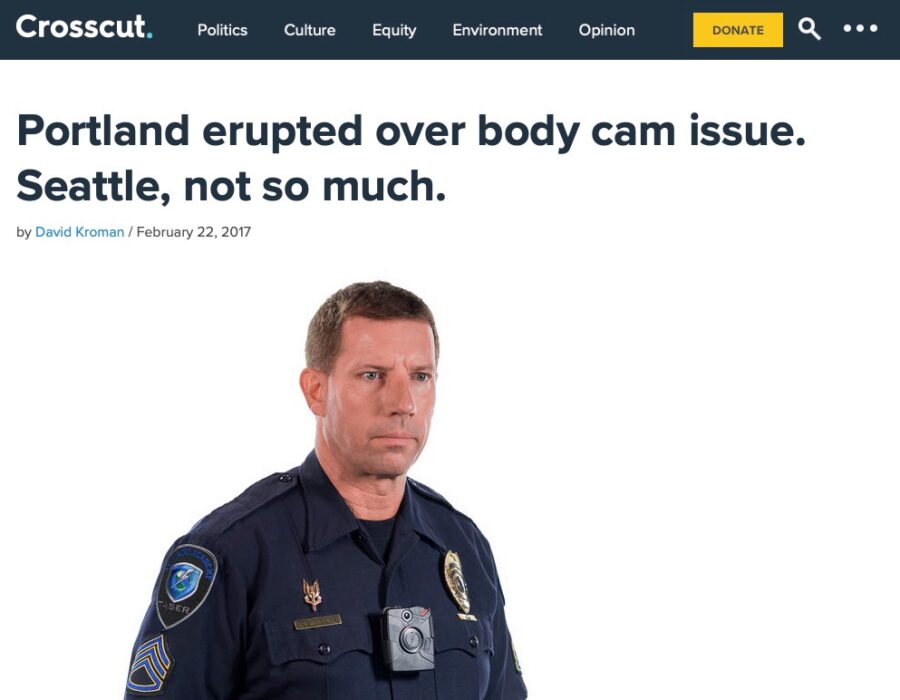Not every concern of the community group was discussed, but of those that were, Harrell had an answer. On privacy, he suggested the questions are really the same as police notes, photography and dash cameras, but in a different form. He also suggested it was unreasonable to be worried about maintaining privacy as many private businesses and citizens have either de facto or explicit surveillance. “I think we’re being naïve about what’s out there now,” he said. “Between Facebook, Instagram, Snapchat, it’s all over. With technology, the expectation of privacy should be greatly diminished,” adding that the conversation may have made more sense “eight or nine years ago.”
SPD Chief Operating Officer Brian Maxey was more willing to acknowledge some of those worries — particularly regarding involuntary filming of innocent bystanders — but said allowing the officers to turn the cameras on and off would minimize risk of exposure.
In a letter sent to Councilmember Gonzalez Wednesday morning responding to concerns from the ACLU, Maxey wrote, “To be clear, it is impossible to address every community and concern in policy and SPD has done its best to be responsive to significant concerns on all sides.” He went on to lambast the ACLU for “disingenuous” complaints, calling the outreach “robust,” portraying officer discretion as “not nearly as nefarious” as the ACLU might think and suggesting that fears of federal data collection are overblown. While he acknowledged the federal government could make public disclosure requests like any third party, he contended that it’s unlikely the federal government will go through massive amounts of video “to randomly search for images of undocumented people (which is not supported by current technology).”
https://crosscut.com/2017/02/portland-erupted-over-body-cam-issue-seattle-not-so-much


